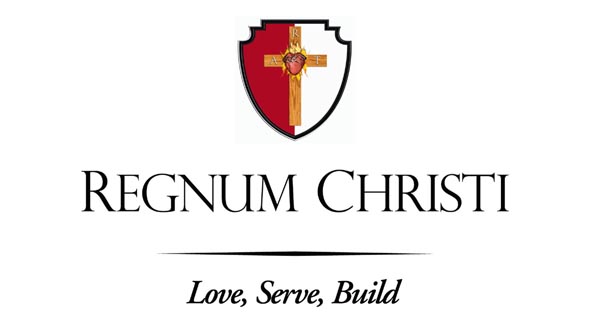A warm thank you to all those, including a number of consecrated members of Regnum Christi, who sent me questions and comments about my recent article. It’s been nice to hear from some of my consecrated friends whom I haven’t seen in years.
Various questions required a bit of thought and research on my part given that I’m not a canon lawyer; so please excuse my delay in answering. For my part, I’m happy to clear up as best I can some finer details, which I learned with the help of Fr. Luis Garza LC, our Vicar General, who has a doctorate in Canon Law and who was given the task to present our Statutes to the Holy See that had been written by our Founder. When Fr. Luis LC began studying Canon Law back in 1992, he realized the importance of getting our Statutes approved and so began suggesting to our Founder that steps be taken in that direction. 
This is what I’ve found thus far. In canon law particular terms are packed with a very particular meaning. Two words may be very similar, but in fact, the one can have a completely distinct canonical meaning from the other. It can seem like splitting hairs. My experience of trying to grasp clearly our precise canonical situation has therefore made me glad to know that Archbishop Velasio De Paolis, C.S. is an expert in canon law. Our Lord has placed us in good hands.
I’ve made one main organizational distinction regarding the questions and comments about my article. Some of the questions address the Regnum Christ Movement, and others touch upon consecrated life in our Movement. My answers are divided along these same lines, beginning with the former category.
 Regarding the Regnum Christi Movement:
Regarding the Regnum Christi Movement:
Question:
Your argument that the third degree of Regnum Christi fits into canon law (573,2) as consecrated life because of the “other sacred bonds” (third degree promises) is terribly mistaken since the same canon speaks of this manner of life in institutes of consecrated life and Regnum Christi is not an institute of consecrated life but an association of the faithful, precisely speaking a third order of the Legionaries of Christ (c. 303)
Answer:
All members of the Regnum Christi Movement fall under canon 303 including consecrated members. Evidently, falling into that category, it is not an institute of consecrated life. But that does not exclude the possibility of some of the members being consecrated. As a matter of fact there are many associations that have consecrated members within them, such as the Focolare and Schönstatt. I would add that strictly speaking, we are not an association of the faithful though canon 303 appears in the general section of associations of the faithful. According to Canon 303, realities like Regnum Christi that share the same superior general and have the same spirituality as a religious congregation are “known as third orders, or are called by some other suitable title”. “Associations of Christ’s faithful” normally refer to a reality that stands on its own, which is not the case of a third order.
Question:
Canon 588.1 says: “By its very nature, the state of consecrated life is neither clerical nor lay”. The consecrated of Regnum Christi state clearly that they are lay members and this fact has also been noted here on RC Live. Can you please clarify?
Answer:
The terms are not mutually exclusive. The state of consecrated life is neither clerical or lay, meaning both clerics and lay people can be consecrated to God. All priests who belong to a religious order are both clerical and consecrated. Similarly, consecrated men and women in Regnum Christi are both lay people and consecrated. However, canon lawyers distinguish between consecrated life and consecration of life. In the Church there are three states of life: the state of consecrated life, the lay state or the clerical state. Some authors say that you can consecrate your life without entering into the state of consecrated life.
Question:
Canon 589 describes two choices for an institute of consecrated life: Pontifical Right or Diocesan Right. You mention that the Legion of Christ is a congregation of Pontifical Right but what about the consecrated members of Regnum Christi? As an association, RC is not an institute of Pontifical Right. Are the consecrated an institute separate from the association Regnum Christi?
Answer:
Since we are not an institute of consecrated life the division between pontifical and diocesan right doesn’t apply to us. In our case the Holy See has approved our Statutes and we depend on the Legionaries of Christ, which is of pontifical right.
Regarding consecrated life in the Regnum Christi Movement:
 The following questions suggest doubt about whether in fact we are indeed consecrated, so I’ll observe straight off that this is not something which is held in doubt by the Holy See. Pope Benedict calls us “i membri consacrati del Movimento Regnum Christi”, that is “the consecrated members of Regnum Christ” in his Communique of May 1, 2010. And our Papal Delegate, Archbishop Velasio De Paolis, C.S. follows suit in addressing his recent letter of October 19, 2010 to both the Legionaries of Christ and “the consecrated members of Regnum Christi”. This term that they’re using, “consecrated”, is applied to all those who give themselves to Christ in a total and undivided way, following him and observing chastity, poverty and obedience in the spirit of the evangelical counsels.
The following questions suggest doubt about whether in fact we are indeed consecrated, so I’ll observe straight off that this is not something which is held in doubt by the Holy See. Pope Benedict calls us “i membri consacrati del Movimento Regnum Christi”, that is “the consecrated members of Regnum Christ” in his Communique of May 1, 2010. And our Papal Delegate, Archbishop Velasio De Paolis, C.S. follows suit in addressing his recent letter of October 19, 2010 to both the Legionaries of Christ and “the consecrated members of Regnum Christi”. This term that they’re using, “consecrated”, is applied to all those who give themselves to Christ in a total and undivided way, following him and observing chastity, poverty and obedience in the spirit of the evangelical counsels.
Question:
Regarding Canon 573.2, you state that the promises of poverty, chastity and obedience satisfy “other sacred bonds”. Are personal promises actually sacred bonds in the eyes of the Church? The statutes (…) refer to a “personal commitment”. That sounds like the type of commitment that I made as a Regnum Christi member during the rite of incorporation. Conversely, I thought that vows and other sacred bonds were recognized by the Church more as a public declaration of a formal commitment (like a covenant, perhaps) and are usually made in the presence of a bishop. (I think these would also require an official of the Church such as a bishop to dispense with). Can you please correct or clarify further?
Answer:
Our promises and the commitments of other members of Regnum Christi are completely different from a canonical point of view. The fact that we pronounce promises by which we offer our life to God and are accepted by a superior in the context of an association approved by the church makes our bond sacred. There are not the same canonical implications of vows in institutes of consecrated life (our promises are not “public” like vows; however, neither are they private in the sense that the Church is indifferent and thinks of our promises as an exclusively individual thing), but there are some canonical implications –we’re regulated by the general canons of consecrated life.
As far as making vows or promises in the presence of the bishop, the Church only specifies this for hermits and “the order of virgins” in canons 603 and 604 respectively. I would suppose they need a bishop because they’re not entering any form of community. Our case is different because the Church representative who receives the promise is an authority in our own Movement. The same principle holds for religious orders. On a further note, some papal documents which are speaking theologically, rather than canonically, put vows and promises on an equal par, as in this citation from Pope John Paul II’s Apostolic Exhortation, On the Vocation and the Mission of the Lay Faithful in the Church and in the World:
In this area we can also recall the spiritual experience of the flourishing of diverse forms of secular institutes that have developed recently in the Church. These offer the lay faithful, and even priests, the possibility of professing the evangelical counsels of poverty, chastity and obedience through vows or promises, while fully maintaining one’s lay or clerical state. (n. 56)
Question:
Other than 83.1 and 83.2 of the Regnum Christi statutes (…), are there any additional statutes or constitutions which refer to or define consecrated life in the Regnum Christi Movement?
Answer:
Numbers 83-127 of our statutes all deal with the consecration of our life.
That’s it for now. I’m going to dive back into Archbishop Velasio De Paolis’ book, “La Vita Consacrata nella Chiesa”, (Consecrated Life in the Church), so perhaps I’ll share my findings with you down the road.

Thank you, Joan! Let me pose a question that goes a bit deeper. Why does it matter that we be able to fit Regnum Christi neatly into an existing and specific category already described in Canon Law? Is it not the law that is drafted and modified in order to regulate the life of the Church, and not vice-versa? The authority that upholds Canon Law is the same that approves or disapproves realities like Regnum Christi. Of course, it is important to know generally where RC fits in, but need it be defined in all detail by already existing canons?
Response from Joan….
In the case of Regnum Christi, it turns out that we do fit into an already existing canon, that of 303. As I said in my first article:
“The Pontifical Council for the Laity is responsible for movements. Accordingly, our statutes were first submitted to this Council for approval. But the Legionaries of Christ were then informed by the Council for the Laity that they needed to submit the statutes to the Congregation for Institutes of Consecrated Life instead, because we fall under canon law no. 303. The Regnum Christi Movement falls under canon no. 303 because we have the same spirituality and same authority as the religious order that guides us, the Legionaries of Christ. The number reads: “Associations whose members live in the world but share in the spirit of some religious institute, under the overall direction of the same institute, and who lead an apostolic life and strive for Christian perfection, are known as third orders, or are called by some other suitable title.” So the Regnum Christi Movement is the same in notion as a third order, though we go by a different name.”
So, in the case of our Movement, the Church has helped us discover our place in canon law. Speaking as a consecrated member of Regnum Christi, I’m very interested in knowing that. It gives me real satisfaction to be able to articulate our juridical and theological status.